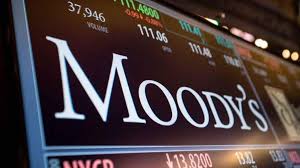Global credit rating agency, Moody’s Ratings, has upgraded Nigeria’s long-term foreign and local currency issuer ratings from Caa1 to B3, citing improved transparency in the country’s foreign exchange system and a more flexible exchange rate regime. However, the agency warned that Nigeria’s progress could be derailed by falling oil prices and persistent inflation, both of which threaten the Central Bank of Nigeria’s (CBN) ability to maintain a stable naira without depleting external reserves.
The upgrade and accompanying caution were contained in a rating action update released on Friday. Moody’s also changed the outlook on Nigeria’s credit profile from “positive” to “stable”, reflecting cautious optimism in the country’s ongoing economic reforms.
According to Moody’s, key to the credit improvement was the unification of Nigeria’s exchange rates, which replaced a multiple-rate system with a market-driven one. The move, led by the CBN, has helped reduce the gap between official and parallel market rates, increased forex liquidity, boosted investor confidence, and strengthened the country’s ability to repay its external debts.
“The upgrade reflects significant improvements in Nigeria’s external and fiscal positions. A more flexible exchange rate has greatly bolstered external reserves. Concurrently, the removal of oil subsidies has alleviated budgetary spending pressures,” the rating agency stated.
Despite the progress, Moody’s warned that Nigeria remains vulnerable to external shocks, particularly fluctuations in global oil prices and persistent inflation. The rating agency expressed concern that a sustained drop in oil prices could pressure the CBN to resume heavy intervention in the forex market, thereby threatening the naira’s stability and investor confidence.
Nigeria relies on crude oil exports for a major share of its foreign exchange earnings, with oil revenue expected to contribute 47.7% of the ₦40.9 trillion projected revenue in the 2025 budget. However, oil prices have already slipped to around $63 per barrel as of Sunday, June 1, 2025, far below the 2025 budget benchmark of $75 per barrel.
Moody’s noted that lower oil revenues could force the CBN to either dip into reserves or abandon its flexible exchange rate stance, a move that could widen exchange rate spreads and shake market confidence.
“Risks are balanced, with the Central Bank of Nigeria potentially facing difficulties in upholding a flexible exchange rate if oil prices decline further, weakening the naira and increasing the government debt burden,” the agency warned.
On the fiscal front, the agency said Nigeria’s debt is expected to stabilise at around 50% of GDP, with interest payments projected to absorb 35% of government revenue—an indicator of the country’s limited fiscal flexibility.
Analysts at Afrinvest echoed Moody’s caution, projecting that if current oil prices persist, Nigeria’s budget deficit in 2025 could surpass ₦17 trillion, pushing total public debt to over ₦180 trillion (about 60% of GDP). They recommended that fiscal authorities adopt a more prudent, capital expenditure-driven strategy to support macroeconomic stability and sustain the gains of CBN reforms.
Moody’s also raised concerns about Nigeria’s inflation rate, which remains elevated despite recent declines. Inflation peaked at 34.8% in December 2024 before moderating to 24.5% in January 2025, partly due to a rebasing of the Consumer Price Index methodology. Food inflation has also eased, dropping to 21.3% in April 2025.
However, Moody’s said the inflation rate is still stubbornly high and could spike again if global commodity prices rise or the naira weakens further. “Persistent high inflation could impede interest rate normalisation,” the agency stated.
To combat inflation, the CBN adopted a tight monetary policy stance throughout 2024, raising the Monetary Policy Rate by 875 basis points to 27.5%, the highest level in decades. It also raised banks’ cash reserve ratio and discontinued the controversial practice of Ways and Means financing of government deficits, which had previously contributed to monetary expansion.
Still, Nigeria faces long-term structural fiscal challenges, especially its weak interest-to-revenue ratio, which Moody’s projects will remain at 35% through 2027. Despite this constraint, the agency acknowledged that the current reforms—particularly tax reforms and forex policy changes—have begun yielding results and may support further credit upgrades if sustained.
“The stable outlook means we expect Nigeria’s recent progress on external and fiscal fronts to continue, though at a slower pace if oil prices fall,” Moody’s said. “A track record of flexible exchange rate policy and successful revenue reforms could improve business sentiment, lower interest rates, and drive economic growth beyond our baseline expectations.”
